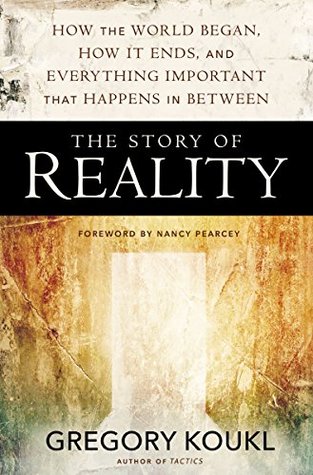More on this book
Community
Kindle Notes & Highlights
Read between
October 24, 2019 - January 5, 2020
First, no one can do whatever he wants with his own body, not in a civilized society anyway. Second, if God made us, then our bodies are not our own, strictly speaking. We inhabit them, of course, and have an important connection with them. But if God is God, then we are not completely free to do as we wish with our bodies. In the end, the Potter has the right over his own clay.
The idea that God owns everything and has proper authority to rule over everything he has made is the main point.
But they did not start out that way. They started out right. Everything was just the way it was supposed to be. Which is just another way of saying that everything God made was good.
Instead, the worth you and I have is built right in. It is with us from the first instant of our beginning and follows us wherever we go, no matter what “shape” we take. It will always be ours. Some essential part of you and me will always be wonderful and beautiful, and nothing and no one can take it away.
If you remove the Creator, you remove the privileges he alone can give.
No, only the image of God in man can give us absolute value, ultimate purpose, and deep worth.
Creation was meant to be under man’s hand, not under his heel.
But the most important thing God gave was himself, that we be continually filled with joy in his presence and find sweet contentment in his provision.6
Even though man is beautiful, he is also broken. Yes, man is noble, but he is also cruel.
as we have loved ourselves?
for me. When measured by the true standard, are we not all found wanting? Are we not all grievous criminals before God every waking moment of our lives? Are you beginning to see just how bad things really are for us? Are you willing to admit just how deeply broken and profoundly guilty you truly are? And take no comfort in hoping that somehow your good will outweigh your bad. This is not how law works. Laws are meant to be kept, and a violation of just one means trouble, even if we keep the rest. And we have not violated just one. We’ve broken them all, in many ways, many times over. This
...more
Yet there is another player in the Story—an intruder, a deceiver, a tempter, a mortal enemy of the King—who speaks a Terrible Lie.2 He tells Adam and Eve that the King cannot be trusted. He says the love of God is not genuine and his word is not true. “Don’t listen to him,” the liar whispers. “Find your own way. Make your own rules. Satisfy your own desires. Freedom awaits you. Be like God.”
This is a test of trust. It is a test of fealty to a Sovereign, a test of love for a father, a test of faithfulness to a friend.
“A good God always prevents evil as far as he is able to,” is simply false, isn’t it? Instead, it is more accurate to say that a good God always prevents suffering and evil unless he has a good reason to allow it.
A perfect Being does not need anything to be completely satisfied and entirely happy (plus, we will learn later, in an odd sort of way God already had real friendships even before he created anything at all).
What I am going to say next will come as a shock to some, but here it is. You can eliminate every single thing Jesus ever said in his life about the poor and social justice, and still you will not undermine his main message one bit. As severe as that may sound, this is precisely what one of Christ’s closest followers actually did.
Therefore, when Christ came into the world, he said: “Sacrifice and offering you did not desire, but a body you prepared for me; with burnt offerings and sin offerings you were not pleased. Then I said, ‘Here I am—it is written about me in the scroll—I have come to do your will, O God.’ ”7
Regarding the grip this Prince of Darkness has on the world and his powerful deceptive influence, see 2 Cor. 4:3, 2 Tim. 2:26, 1 Jn. 5:19, and Rev. 12:9 and 13:14. 3. Ps. 14:3.


